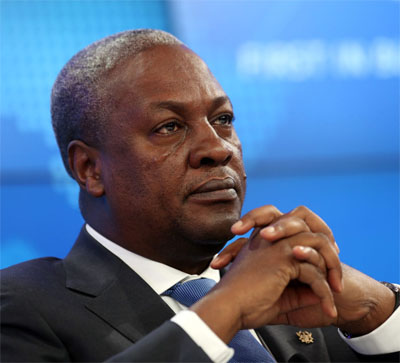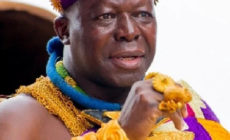“Corruption is not the responsibility of only the president” – Prez. Mahama
- Posted on
- Comment
 PRESIDENT John Dramani Mahama has appealed to the chief directors, board chairs and heads of the public service to help him fight corruption since he can’t do it alone.
PRESIDENT John Dramani Mahama has appealed to the chief directors, board chairs and heads of the public service to help him fight corruption since he can’t do it alone.
“Corruption is not the responsibility of only the president. I am not everywhere in all your establishments to supervise and make sure nobody is taking any money,” he said.
The president said this when he was giving a keynote address at the 8th Conference of Public Service Chief Directors, Chief Executives and Chairpersons of Governing Boards and Councils in Koforidua last Friday.
Mr Mahama charged the public officers to ensure that officers indicted in the Auditor-General’s report faced the full rigours of the law.
He observed that year in, year out, chief directors find themselves in an embarrassing position whenever they have to face the Public Accounts Committee of Parliament to answer questions bordering on mismanagement and abuse of public funds.
“I normally feel very sorry for you when you appear and you are being quizzed. …and so one would think that after leaving that uncomfortable situation, when you go back, you will take control and make sure you are not summoned back.
“Look for all people mentioned in the Auditor-General’s report and take effective action against them. …that is what you are required to do,” the president said.
Mr Mahama also expressed worry about the tendency of some Ghanaian professionals to demand money before rendering public services, noting,
“It is not ethical, absolutely unethical.”
The President therefore tasked the heads of the public service to step up their supervisory role because the key ingredient missing in the public service sector is supervision and accountability.
He said it was unacceptable that the public service should be synonymous to inefficiency.
Mr Mahama posited that bureaucracy and delays are some of the attitudes in the public sector that the leadership of the public service must change.
He said donor partners of the country were complaining of non-utilisation of donor funds due to delays and lack of commitment on the part of public sector officials.
Mrs Bridget Kastriku, President of the Public Service Commission, in her address, noted that the interface between governing boards and councils and sector ministries are not clearly defined, resulting in low performance and none achievement of set targets.
She said in order to assess the impact of the public service, an annual survey began last year and that the maiden report would inform PSC on guidelines to improve the public sector.
By Daniel Bampoe










 (Selorm) |
(Selorm) |  (Nana Kwesi)
(Nana Kwesi)